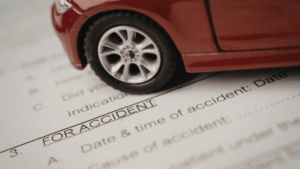
You know that you are supposed to get enough sleep every night – and you do your best. However, actually getting enough sleep is not always as easy as one would think.
Sleep is essential for the human body. It affects your mood, mental abilities, and overall physical health. If you do not get enough sleep, it will eventually take its toll. You may notice your daytime energy tanks, you have low productivity, and you could even gain weight.
More so, a lack of sleep puts you at high-risk for drowsy driving – a growing problem in the United States.
As part of Drowsy Driving Prevention Week, which is November 5th to 12th this year, the team at Brett McCandlis Brown & Conner, PLLC offers expert-approved sleep tips so that you can get enough sleep each night.
5 Ways to Get More Sleep Every Night Backed by Science
Sleep is supposed to be natural, but with the chaos and demands of everyday life it can be hard to get to bed at a decent hour. Even once you are there, you may find that your sleep is not restful, you toss and turn, or it takes hours for you to wind down.
To get more sleep, consider these science-backed tips:
- Power Down an Hour Before Your Preferred Bedtime – Set a bedtime every night. Then, start powering down an hour before. If that means setting an alarm so that you know it is time to “power” off, do so. During this hour, dim the lights and stop using all devices – including your phone, computer, and TV. Bright light triggers your brain to remain awake and alert; therefore, the earlier you turn off that signal, the faster you will fall asleep.
- No More Caffeine in the Afternoon – That afternoon pick-me-up might be what you need to push through the day, but if you were to get more sleep every night you would not need that extra push. Caffeine should be cut off after your lunch break to avoid being too “wired” to sleep later.
- Keep the Bed for Sleep and Relations Only – Reading in bed, even with a dim light, might seem like the right way to wind down. However, you are making it harder for your brain to enter sleep mode when you do things (other than sleep) in your bed. Keep reading and any relaxation activities outside of the bedroom – and only slip into bed when you are ready for sleep.
- Write it Down Before – While you are doing your power down hour, consider sitting down and writing out your thoughts. Most of us have trouble falling asleep at night because we sit there thinking about what we did that day or what we need to do tomorrow. According to one expert, taking the time to work through your day and cleansing yourself mentally readies you for bed. While you are writing things down, write down anything that is worrying you or on your mind.
- Stay Consistent – It might be Friday night, but that shouldn’t mean you stay up all night and sleep in on Saturday morning. If you truly want excellent sleep each night, keep a sleep and wake schedule that is consistent regardless of the day. The more you are consistent with bedtime and wake time, the easier it will be to sleep – and to get up in the morning.
Drowsy Driving is Negligent Driving
Drowsy driving is negligent driving; therefore, if you are injured by a drowsy driver, you may be entitled to compensation.
If you or a loved one was involved in an accident caused by a drowsy driver, explore your options for compensation by speaking with an attorney from Brett McCandlis Brown & Conner, PLLC. Schedule your free case evaluation now at 800-925-1875 or request your consultation appointment online.


